Course Faculty
LEAD TEACHING FACULTY
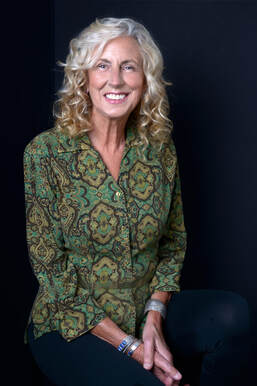
Patricia Shehan Campbell is Donald E. Peterson Professor of Music at the University of Washington, where she teaches courses at the interface of education and ethnomusicology. A singer and pianist, with studies of the Japanese koto, Celtic harp, Karnatic Indian mridangam, and Bulgarian and Wagogo song, she has lectured internationally on the pedagogy of world music and children’s musical cultures. She is the author of Lessons from the World (1991), Music in Cultural Context (1996), Songs in Their Heads (1998, 2010), Teaching Music Globally (2004), Musician and Teacher (2008), Music, Education, and Diversity: Bridging Cultures and Communities (2018), co-author of Music in Childhood (2017, 4th edition) and Redefining Music Studies in an Age of Change (2017), co-editor of the Global Music Series and the Oxford Handbook on Children’s Musical Cultures (2013). Campbell is recipient of the 2017 Koizumi Prize and the 2012 Taiji Award for work on the preservation of traditional music through educational practice, and was designated the Senior Researcher in Music Education of the National Association for Music Education in 2002. Chair of the Advisory Board of Smithsonian Folkways and educational consultant in the repatriation of Alan Lomax recordings to the American South, she is editor of a forthcoming series of six volumes on World Music Pedagogy (2018) for practicing and prospective teachers.
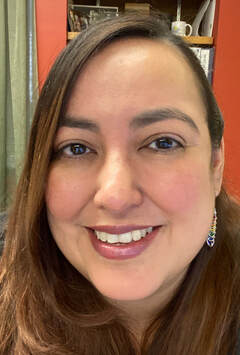
Amanda Christina Soto is the Associate Professor of Music Education at the Texas State University where she teaches undergraduate and graduate music education courses and in charge of the music education student teachers. Prior to moving to the Central Texas area, Soto taught at the University of Idaho, as a middle school band director in South Texas, and taught general music to children in Kindergarten through sixth grade within the Seattle Public Schools.
Her research interests include cultural diversity in music education, bimusical sensibilities of children, world music pedagogy, children’s musical culture, and the study of regional musics of South Texas and Mexican music. Soto holds publications in Music Educators Journal, Journal of Research in Music Education, the International Journal of Ethnomusicology Studies of World Music and Dance Education, and the newest edition of Multicultural Perspectives in Music Education. Soto has created lesson plans on traditional Mexican music and Conjunto music that appear on the Smithsonian Folkways website.
Dr. Soto has conducted clinical workshops in various musical genres of Mexico, regional Latin musical styles in the U.S., and promoted the use of Smithsonian Folkways archive in the public school classroom. She has presented her research at MENC, the College of Music Society, the Society for Ethnomusicology, the Asia-Pacific Symposium on Music Education Research, the International Society for Music Education, the International Conference on Cultural Diversity in Music Education and the College Music Society. She has created student and teacher workshops for the American Sabor: Latinos in U.S. Popular Music exhibit at the Experience Music Project/Science Fiction Museum and Hall of Fame in Seattle, WA and for the PBS documentary, Latino Music USA.
Her research interests include cultural diversity in music education, bimusical sensibilities of children, world music pedagogy, children’s musical culture, and the study of regional musics of South Texas and Mexican music. Soto holds publications in Music Educators Journal, Journal of Research in Music Education, the International Journal of Ethnomusicology Studies of World Music and Dance Education, and the newest edition of Multicultural Perspectives in Music Education. Soto has created lesson plans on traditional Mexican music and Conjunto music that appear on the Smithsonian Folkways website.
Dr. Soto has conducted clinical workshops in various musical genres of Mexico, regional Latin musical styles in the U.S., and promoted the use of Smithsonian Folkways archive in the public school classroom. She has presented her research at MENC, the College of Music Society, the Society for Ethnomusicology, the Asia-Pacific Symposium on Music Education Research, the International Society for Music Education, the International Conference on Cultural Diversity in Music Education and the College Music Society. She has created student and teacher workshops for the American Sabor: Latinos in U.S. Popular Music exhibit at the Experience Music Project/Science Fiction Museum and Hall of Fame in Seattle, WA and for the PBS documentary, Latino Music USA.
Guest Teaching Faculty (in alphabetical order)
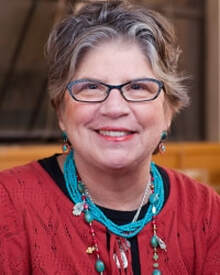
Marisol Berríos-Miranda has a PhD in ethnomusicology, but her first education came from a childhood in her native Puerto Rico, where she was soaked in music. "I studied music academically, but the way I learned music - who sings well, what had a good rhythm - was sitting down and listening with my dad." She also credits her mother, Juanita Miranda-Berrios. "She is the encyclopedia. She knows everything about Latin rhythm and dance."
Marisol teaches in layers, one rhythm at a time. She recently completed a residency at Alki Elementary School, teaching Latin rhythms to 120 fourth and fifth graders, which culminated in a concert. "They were the best!" she says, "curious, engaged, respectful. 30 years ago, when I came to the United States and was teaching people the Clave, it was almost impossible for them to get it: the side-to-side movements that accompany the rhythm can be difficult. But these kids nowadays hear more Latin and African rhythms at a younger age, they are more exposed to world rhythms." (Clave is the Spanish word for keystone or key. A Clave rhythm is a repeated five-note pattern.)
"The interlocking rhythms and call-response singing of Latin Caribbean music have a special power to generate participation," says Marisol, who used the fellowship to share her knowledge and experience with Eckstein Middle School, taking young jazz musicians to a deeper level of Afro-Caribbean playing. She is also deeply involved with the Seattle Fandango project. "People need to get back to playing music themselves," she says, "all the generations: mamas with babies, teenagers, elders. We are community building through music making. And that's amazing."
As co-curator of the Smithsonian Traveling Exhibit American Sabor, Marisol developed, in collaboration with Shannon Dudley and Michelle Habell-Pallán, a classroom curriculum, educator resources, and guided listening programs. The exhibit highlights the contributions of Latinos to popular music in the United States since World War II.
"One of my purposes is to share the joy and happiness of music and dancing," says Marisol. "This is my way to free the creative impulses in our children, so they have such intense joy in the learning and doing." Quoting Nietzsche, she says, "We should consider every day lost on which we have not danced at least once."
Marisol teaches in layers, one rhythm at a time. She recently completed a residency at Alki Elementary School, teaching Latin rhythms to 120 fourth and fifth graders, which culminated in a concert. "They were the best!" she says, "curious, engaged, respectful. 30 years ago, when I came to the United States and was teaching people the Clave, it was almost impossible for them to get it: the side-to-side movements that accompany the rhythm can be difficult. But these kids nowadays hear more Latin and African rhythms at a younger age, they are more exposed to world rhythms." (Clave is the Spanish word for keystone or key. A Clave rhythm is a repeated five-note pattern.)
"The interlocking rhythms and call-response singing of Latin Caribbean music have a special power to generate participation," says Marisol, who used the fellowship to share her knowledge and experience with Eckstein Middle School, taking young jazz musicians to a deeper level of Afro-Caribbean playing. She is also deeply involved with the Seattle Fandango project. "People need to get back to playing music themselves," she says, "all the generations: mamas with babies, teenagers, elders. We are community building through music making. And that's amazing."
As co-curator of the Smithsonian Traveling Exhibit American Sabor, Marisol developed, in collaboration with Shannon Dudley and Michelle Habell-Pallán, a classroom curriculum, educator resources, and guided listening programs. The exhibit highlights the contributions of Latinos to popular music in the United States since World War II.
"One of my purposes is to share the joy and happiness of music and dancing," says Marisol. "This is my way to free the creative impulses in our children, so they have such intense joy in the learning and doing." Quoting Nietzsche, she says, "We should consider every day lost on which we have not danced at least once."
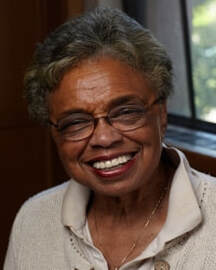
Phyllis Byrdwell is director of the UW Gospel Choir, is Minister of Music at Mount Zion Baptist Church of Seattle and also a music educator for Lakeside School. She has conducted several seminar workshops on Gospel music throughout Washington state and nationally, and served as a songleader for the Baptist World Alliance conference in Birmingham, England in 2005. Byrdwell was inducted into the Washington Music Educators Association's Hall of Fame in 2002 and serves on the Seattle Symphony Board of Directors. A School of Music alumna, she holds a bachelor's degree in music and bachelor's and master's degrees in music education.
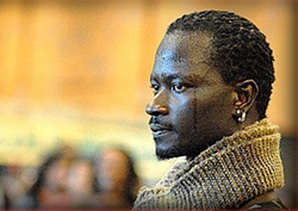
Thione Diop, percussionist from Senegal, West Africa, is widely recognized for his powerfully expressive Djembe performances. He is descended from an ancestral line of Griot drummers in Senegal, West Africa, and is a master of the djembe, sabar, tama, and djun djun.
In 1998, Thione moved to Seattle to teach and perform; a year later he formed Yeke Yeke, a percussion ensemble that has performed the traditional rhythms of West Africa to delighted audiences for the last ten years. Thione is also responsible for some incredible regional events, such as the annual Spirit of West Africa Festival and Kasumai Africa, offering the Pacific Northwest audiences a chance to enjoy immersive experiences in African music, dance, and culture.
Thione has shared the stage with such noteworthy musicians as Poncho Sanchez, Alpha Blondy, Prince Diabate and Max Romeo. Thione Diop and his group Yeke Yeke are well known from their many regional appearances in the U.S. and Canadian Northwest. In Senegal, Thione has collaborated with renowned griot artists Babou Laye Cissokho; master Kora player, Thierno Kouyate; Orchestra Baobab saxophonist, Thierno Ba; Xalam master, Samba Ndoc Tama player for Cheikh Lo and singer Abdoulaye N’Diaye on a number of tracks.
A track from one of his most recent collaborations, Samba Griot, co-produced by Thione and Lynette Wich, is featured in the film The Heartbreak Kid. The track “Lamba” from Jammu Aduna is featured in the documentary “End of Poverty” by Philip Diaz. Additionally, various tracks from Kham Saa Thiosanne were used in the Spanish documentary film “Metropoluz” by Eduardo Torres. Thione is co-producing a documentary film, Modern Day Griots with director Malika Weeden.
In 1998, Thione moved to Seattle to teach and perform; a year later he formed Yeke Yeke, a percussion ensemble that has performed the traditional rhythms of West Africa to delighted audiences for the last ten years. Thione is also responsible for some incredible regional events, such as the annual Spirit of West Africa Festival and Kasumai Africa, offering the Pacific Northwest audiences a chance to enjoy immersive experiences in African music, dance, and culture.
Thione has shared the stage with such noteworthy musicians as Poncho Sanchez, Alpha Blondy, Prince Diabate and Max Romeo. Thione Diop and his group Yeke Yeke are well known from their many regional appearances in the U.S. and Canadian Northwest. In Senegal, Thione has collaborated with renowned griot artists Babou Laye Cissokho; master Kora player, Thierno Kouyate; Orchestra Baobab saxophonist, Thierno Ba; Xalam master, Samba Ndoc Tama player for Cheikh Lo and singer Abdoulaye N’Diaye on a number of tracks.
A track from one of his most recent collaborations, Samba Griot, co-produced by Thione and Lynette Wich, is featured in the film The Heartbreak Kid. The track “Lamba” from Jammu Aduna is featured in the documentary “End of Poverty” by Philip Diaz. Additionally, various tracks from Kham Saa Thiosanne were used in the Spanish documentary film “Metropoluz” by Eduardo Torres. Thione is co-producing a documentary film, Modern Day Griots with director Malika Weeden.
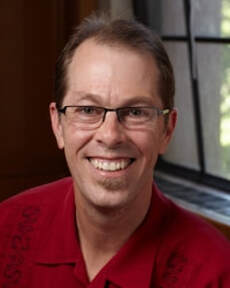
Shannon Dudley, associate professor of Ethnomusicology, holds a PhD from the University of California at Berkeley. He teaches courses that include music of Latin America and the Caribbean, American popular music, Music and Community, Comparative Musicianship and Analysis, and graduate seminars in Ethnomusicology. He also directs the UW steeelband.
Dudley has conducted research in Trinidad and Tobago, focusing on the history and music of steelbands. More recent research projects include the music of El Gran Combo, and salsa music in Puerto Rico generally, as well as Latino contributions to American popular music. His theoretical interests include nationalism, transculturation, and participatory music practices.
His publications include Carnival Music in Trinidad (Oxford University Press, 2004), as well as Music From Behind the Bridge (Oxford University Press, 2008), a history of Trinidad steelband music, and numerous other articles on Caribbean music, including and "Judging by the Beat: Calypso vs. Soca," Ethnomusicology (1996), and “El Gran Combo, Cortijo, and the Musical Geography of Cangrejos/Santurce, Puerto Rico,” Journal of Caribbean Studies (2008).
Dudley is one of the curators (along with his wife, Marisol Berríos-Miranda, and Michelle Habell-Pallan) for American Sabor: Latinos in U.S. Popular Music, a bilingual museum exhibit that opened at the Experience Music Project in Seattle in 2008. American Sabor was exhibited in museums in several U.S. cities, culminating in a 3-month run at the International Gallery of the Smithsonian Institution in summer 2011. He is also guest curator for a smaller version of the exhibit prepared by the Smithsonian Institution Travelling Exhibit Service (SITES), and for their website (http://www.americansabor.org), and is currently working on a book manuscript.
In Seattle Dudley performs on steel pan with several local bands, and participates in the Seattle Fandango Project (SFP), a community music group that practices son jarocho. He has helped to bring visiting artists from Mexico to the University of Washington (including Son de Madera and Laura Rebolloso) and to promote active collaboration between community arts activists and university individuals and programs.
Dudley has conducted research in Trinidad and Tobago, focusing on the history and music of steelbands. More recent research projects include the music of El Gran Combo, and salsa music in Puerto Rico generally, as well as Latino contributions to American popular music. His theoretical interests include nationalism, transculturation, and participatory music practices.
His publications include Carnival Music in Trinidad (Oxford University Press, 2004), as well as Music From Behind the Bridge (Oxford University Press, 2008), a history of Trinidad steelband music, and numerous other articles on Caribbean music, including and "Judging by the Beat: Calypso vs. Soca," Ethnomusicology (1996), and “El Gran Combo, Cortijo, and the Musical Geography of Cangrejos/Santurce, Puerto Rico,” Journal of Caribbean Studies (2008).
Dudley is one of the curators (along with his wife, Marisol Berríos-Miranda, and Michelle Habell-Pallan) for American Sabor: Latinos in U.S. Popular Music, a bilingual museum exhibit that opened at the Experience Music Project in Seattle in 2008. American Sabor was exhibited in museums in several U.S. cities, culminating in a 3-month run at the International Gallery of the Smithsonian Institution in summer 2011. He is also guest curator for a smaller version of the exhibit prepared by the Smithsonian Institution Travelling Exhibit Service (SITES), and for their website (http://www.americansabor.org), and is currently working on a book manuscript.
In Seattle Dudley performs on steel pan with several local bands, and participates in the Seattle Fandango Project (SFP), a community music group that practices son jarocho. He has helped to bring visiting artists from Mexico to the University of Washington (including Son de Madera and Laura Rebolloso) and to promote active collaboration between community arts activists and university individuals and programs.
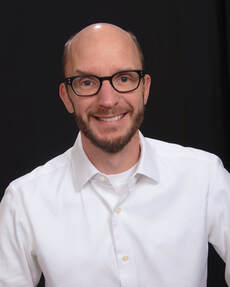
J. Christopher Roberts is Lecturer and Coordinator of Music Teacher Preparation at the University of Washington. He holds degrees from Swarthmore College (B.A., History) and the University of Washington (M.A., Ph.D., Music Education), with research and clinical interests in children’s musical cultures, world music education, and the nature of children’s interest in music. Recent articles have appeared in publications including Bulletin of the Council for Research in Music Education (2017), Update (2017), British Journal of Music Education (2016), Journal of Research in Music Education (2013; 2015), and Oxford Handbook of Social Justice in Music Education (2015). An elementary music teacher for 20 years, he currently directs the Kodály Levels Program of Seattle.
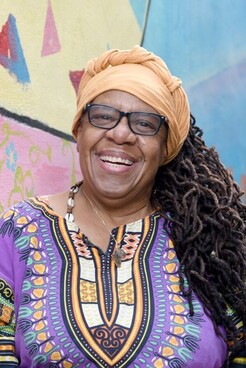
Sheree Seretse, Ethnomusicologist and Music Educator, received her training at the UW. She focused her studies on traditional and contemporary music of Zimbabwe. Sheree has studied marimba, mbira, drums, dance and storytelling extensively with many professional musicians and artists in Zimbabwe and the US. Sheree is currently the director of two marimba ensembles specializing in Zimbabwean music and teaches at two elementary schools currently.
